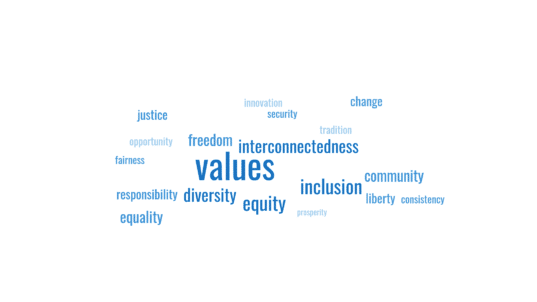After reading Maria’s recent post about what she will do next with her IF class now that they are not in their original groups, I realize that I feel I’m at a bit of a crossroads with my class as well. Tomorrow is our last small group discussion on the question “What is Art?”, and I’m expecting that they’ll consolidate and revise their possible responses tomorrow. In the end each group came up with 5 or 6 possibilities, although they still haven’t clarified the possibilities very well. I’m hoping they’ll make progress tomorrow, since once they get to the point of writing their report as a group, they will find it hard to finish without clarity in their group.
Interestingly, one of the hardest things I found was getting them to come up with different possibilities. They had a strong tendency to try to make every possibility exactly correct, meaning that they kept revising the possibilities in line with what they (in the end) think is the right answer. So the possibilities kept converging, even when I insisted that it’s important to keep them distinct. At one point one group member was insisting that artworks are physical objects, and another group member insisted that performances are artworks, but not physical. They began engaging in a debate which was partially antagonistic, partially an attempt to clarify each others’ position. I stepped in and told the group that this is a great opportunity to practice “yes, and” – one possibility can capture the notion of artworks as physical objects, and another can capture the idea that artworks include (or are) performances. Yet even when I got that explicit about “yes, and”, they resisted trying it. It’s not that they wanted to disagree exactly, but instead they wanted to work on getting The Correct Answer. It’s been hard for me to get them to appreciate that there may be more than one acceptable answer.
Along similar lines, one of the groups showed up ill-prepared on Thursday, and one of the participants opened up her laptop to look at their last summary, which was posted on Blackboard. After sharing the relevant content from the summary, she left her laptop open, and on her lap. I watched to see how the facilitator would handle it, but she didn’t say anything. I could see the student with the laptop start to websurf (I was sitting behind her), and not really engage with the group. Then, in the middle of the group discussion, she began quoting a Wikipedia article on Art – explaining how “art” is defined by Wikipedia. Without me saying anything, one of the other group members remarked that Wikipedia is unreliable, and that they (the group members) have a better understanding of art than Wikipedia. So score one for the group having faith in their abilities!
So now I’m trying to plan the next phase of my course, which has really been shaken up. I need more downtime and fun in the classroom, since I’ve been working them really hard for the last three weeks. I decided to start our next round of discussions on a more concrete and tractable question, but one that still focuses on art, since that is the topic for the course. So I’m going to ask them to talk about the value of art in society. I plan on beginning next week with them talking about the place of art in public education, and why it is important. Since they have all had experience with art in school, they’ll likely have something to say about this question, and Hollins has strong programs in the arts, so they’ve chosen a liberal arts college with strong visual art, creative writing, dance and theatre departments. I’m even considering having them complete a project that would ask them to play the role of a school superintendent and look at how to design a budget for a school curriculum, including how to decide how many resources go to the arts. If anyone has ideas about how to design such a project or resources I can use, I’d love to hear about them.
My goal now is to focus on how to ensure the discussion can be more accessible to the students. I’ve acknowledged to them that I’ve given them a difficult task, one that’s more difficult than I had imagined it would be. So hopefully the next round of discussions will go a lot more smoothly.
One final lesson I’m learning: I have to spend a lot of time teaching things other than the content of the course. I believe that the discussion process works best with some structure, and the IF model, with a facilitator helping guide the discussion, is a good structure. But it means that I have to teach facilitation as a skill, which is very time-consuming and difficult, especially since I haven’t done it before. It also means that organizing and managing the groups takes a lot of work on my part, especially since I’m teaching first-year students, who need more hand-holding. I e-mail facilitators for each class two days before they facilitate to help them prepare, and explain the goals for the coming discussion. Then I also arrange meetings with facilitators individually after class, and I have them fill out self-assessments, and write up my evaluations of their facilitation. It’s worth it, but it’s also necessary to make the groups work better I think. And hopefully soon they’ll get to a point when they are more self-sufficient. I’m looking forward to that day.
Michael Gettings



